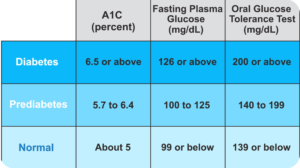Living healthy has little to do with a doctor’s office, the latest as-seen-on-TV fitness contraption, or magic cure-it-all pills and tonics. In reality, lifelong health and wellness is a matter of how you live—specifically, what you do or don’t do in five crucial areas of your life.

To be fair, some sources cite seven, eight, or another number of wellness “elements” or pillars. The medical experts at Healplace have identified five key areas that determine overall wellness, with two supporting foundation building blocks that “reinforce” the work done in each pillar. The point is the same regardless of the number: wellness is a way of living, not something extra. Lifelong wellness and disease prevention involves all five areas—neglect one, and your system of health can break down.
The 5 Pillars
Although these are broken down into distinct pillars, each overlaps with the other (such as efficient breathing’s role in both mental and physical wellness).
- Breathe. Most people give little thought to how they breathe, because the process happens on its own. But make no mistake, controlled breathing is a powerful health tool. You need look no further than elite athletes and meditation professionals to see the transformative potential of breathwork, including deep belly breathing (expanding the core on a slow and steady inhale, and squeezing it tight on the exhale), and prescribed breathing exercises (like the 4-7-8 breathing method which can significantly reduce stress and anxiety).
- Do. This simply means “staying active”. For some people, that may entail visiting a gym or yoga studio three to five times each week. For others, it can be as simple as walking briskly for 30 minutes each day, and exploiting other life hacks that get you up and moving. The point is to avoid a sedentary lifestyle, which has been conclusively found to contribute to a range of health issues.
- Contemplate. Being mindful can increase your appreciation of life, and offers many other benefits as well. For instance, a few minutes spent meditating each day can improve focus and clarity, reduce stress and depression, and even lower blood pressure. Keep in mind that complete mental wellness involves the other four pillars, as well.
- Consume. Everything you put in your mouth will have some health effect, good or bad. That’s why you should take steps to eat a thoughtful, plant-based, healthy diet. Avoid oversold, unproven supplements, and take drugs carefully, having first read all accompanying literature.
- Restore. A good night’s sleep is essential to long-term health. Deep sleep is your body’s chance to repair damage and recharge. Sleep also has a profound impact on mental health and bad sleep may even contribute to dementia and Alzheimer’s. All of that is why you should take active steps to improve sleep hygiene, establish a healthy sleep routine, and remedy any insomnia or other sleep issues.
The 2 Additional Building Blocks
The concerns listed below play a part in mental and physical well-being, although most people (and many health professionals) don’t think of them as factors in wellness.
- Social engagement. Many studies have shown that social engagement—even for introverts—plays a key role in mental and physical health. The easy way to get your dose is to join a club, schedule regular meals with friends and family, and attend events like book readings or trivia night mixers at local restaurants.
- Vocation. This entails not only what you do for work, but any volunteering. It is actually about accomplishments that lead to a feeling of fulfillment and contentment—both of which can measurably influence mental and physical wellness. Even if you are not completely satisfied by your career, you can derive the happiness of achievement from indulging hobbies such as cooking or art, or helping out at a local soup kitchen or other non-profit.
Build your own five pillars by consciously addressing each one. The best solutions will be those you integrate into your everyday life and that become habits. For instance, the more meals you make from scratch, the healthier you will be. Taking time to cook a meal can also be your opportunity to slow down, destress, and engage in a mindful activity.





